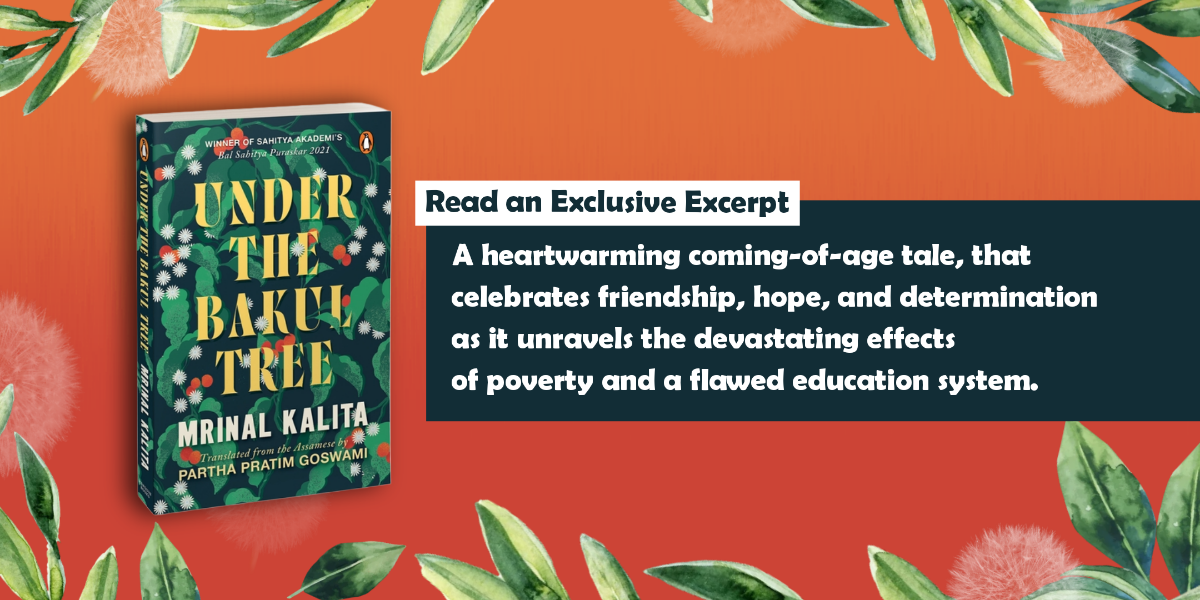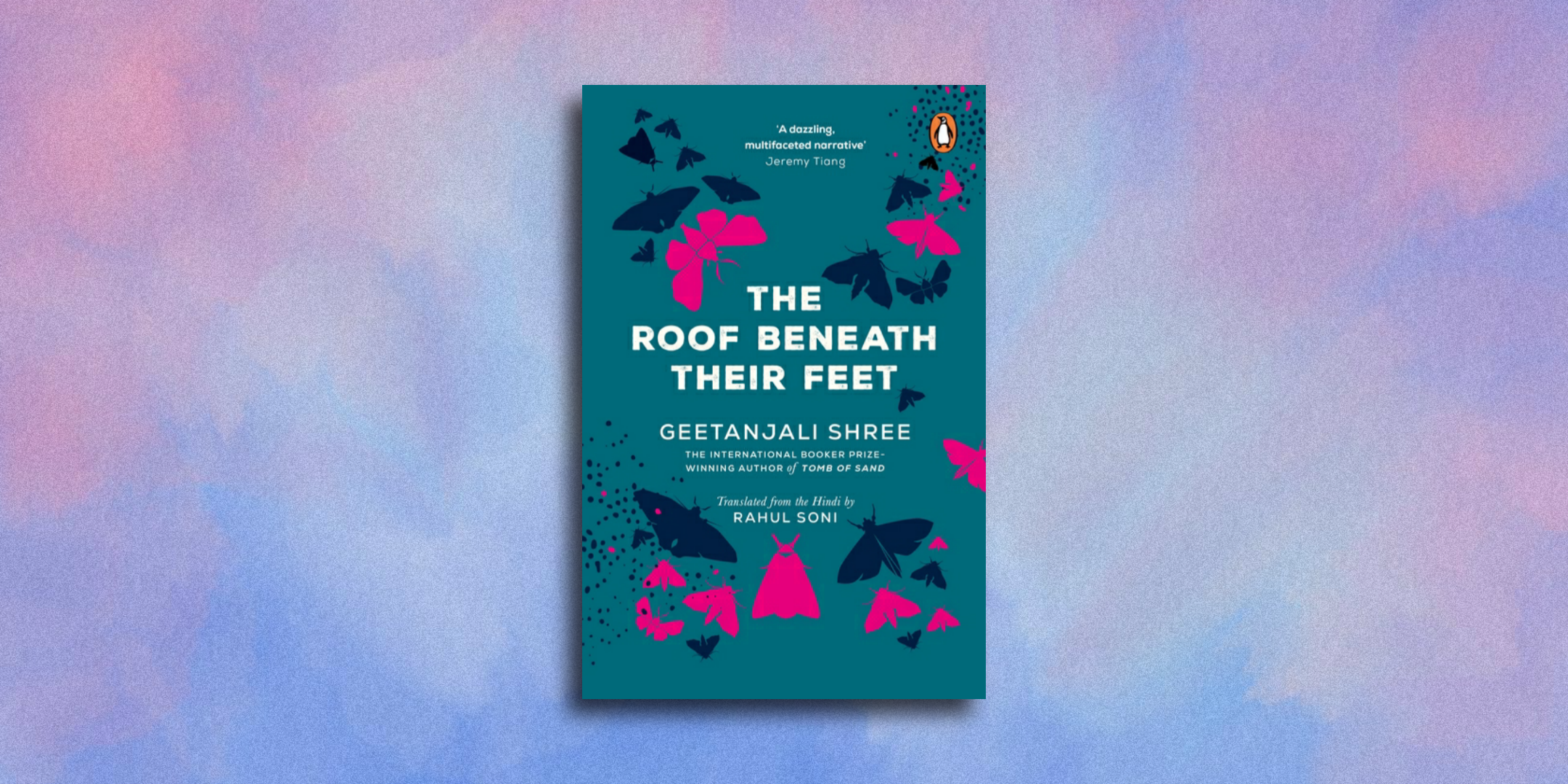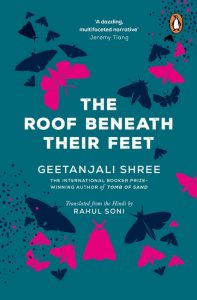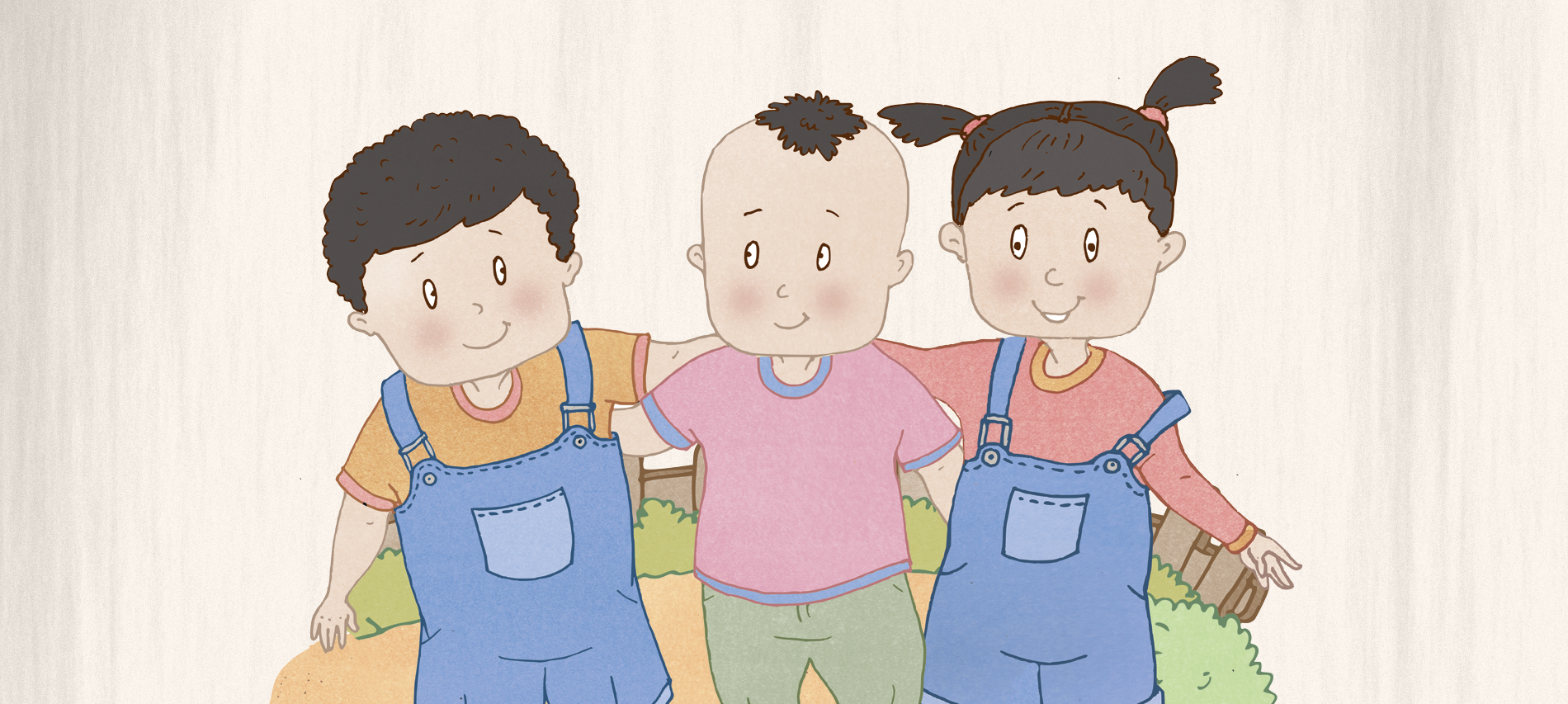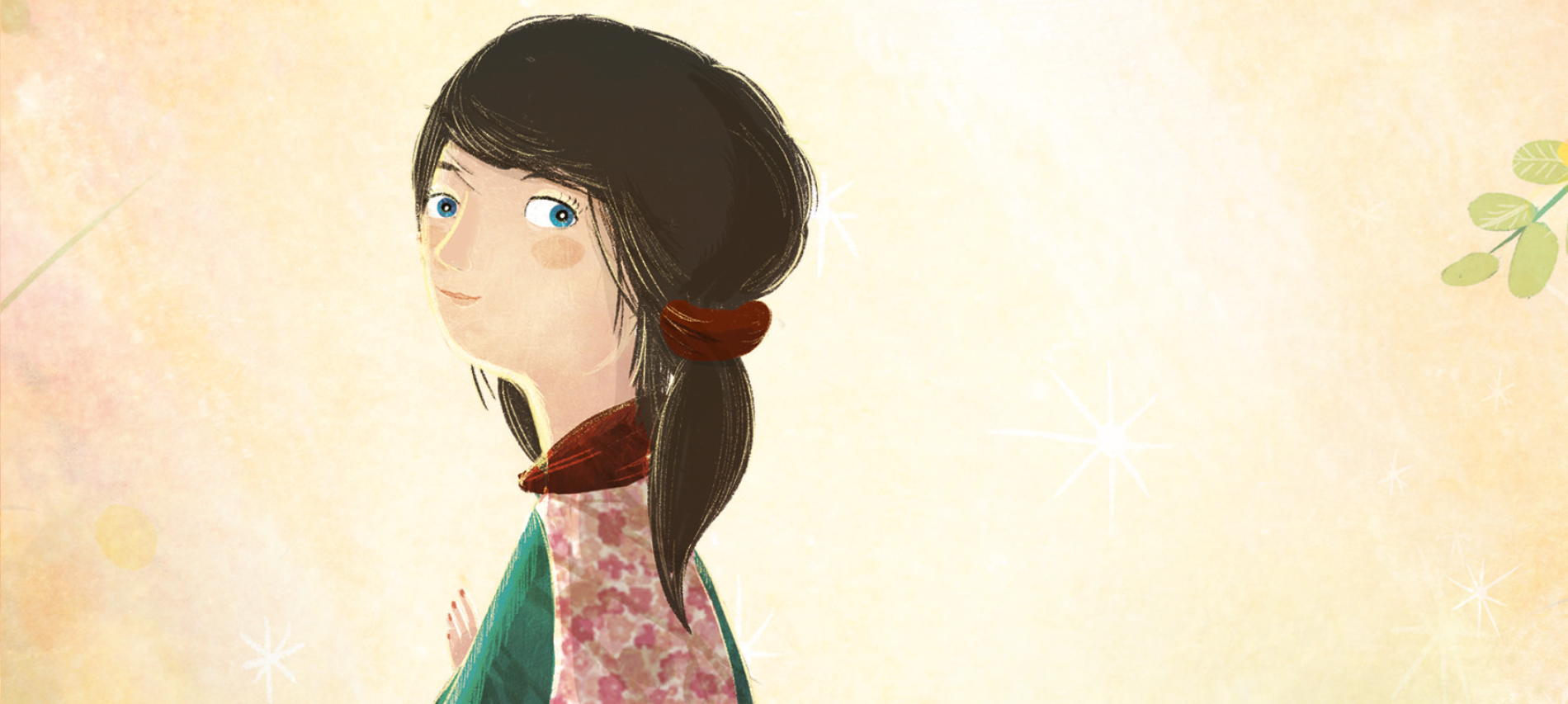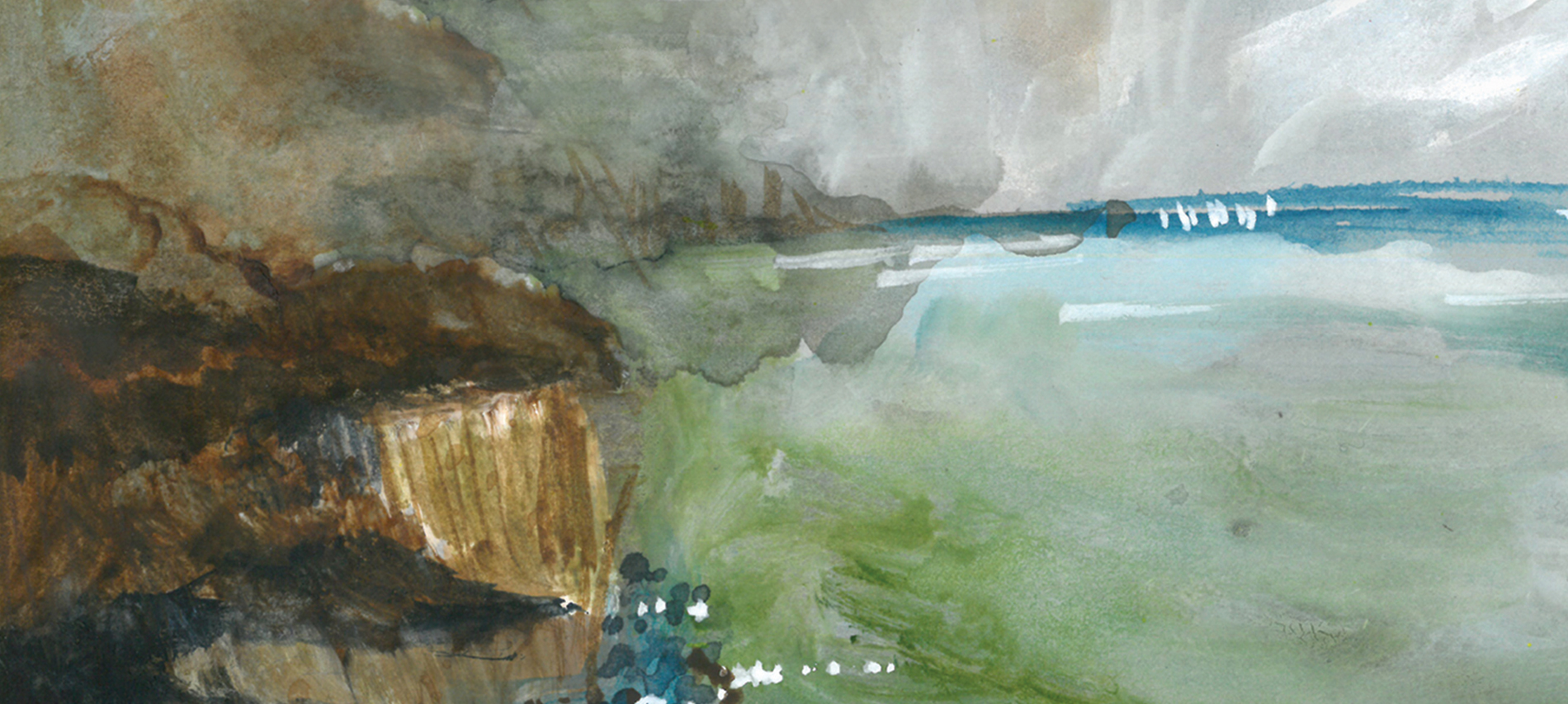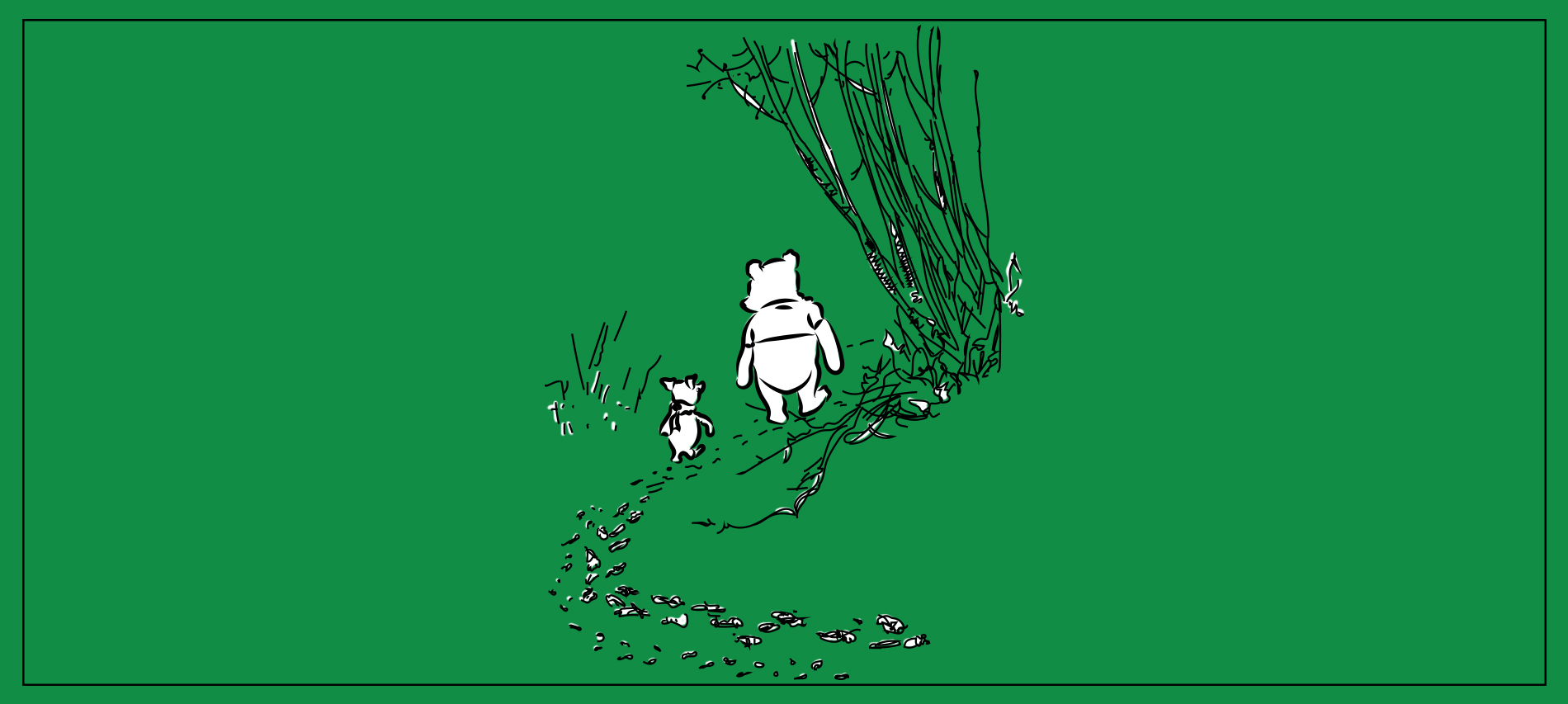Experience the rustic beauty of Assam with Under the Bakul Tree by acclaimed author Mrinal Kalita, recipient of the Bal Sahitya Puraskar award. Follow Ashim’s journey as he faces tough choices and heavy responsibilities. Translated for the first time from the Assamese, Under the Bakul Tree is a coming-of-age tale that celebrates hope, determination, and the power of true friendship amidst the struggles of poverty and a flawed education system.
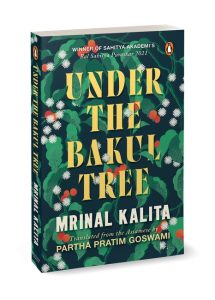
***
Ashim lay sleepless on the bed. He was restless. The moonlight crept in through the slats in the reedmat wall and scattered on the opposite side. He could see the starry sky through the slats. Ashim didn’t like it in the slightest. He didn’t like the scattered moonlight floating inside the house and he found no beauty in the star-filled sky that appeared to him through the slats in the wall. The scattered moonlight looked like lumps on the skin of a leper! As the thought crossed his mind, he felt a sudden jolt in his body. He felt as if he was becoming mentally ill.
For the last few days, he had been thinking about the same thing over and over again. But he couldn’t arrive at a decision. He turned to look at the face of his Deuta, his father, who was fast asleep beside him on the same cot. He then looked at his mother and sister who were sleeping on the next cot. He could see their pale, rundown faces in the moonlight. An acute pang of pain filled his heart. His feelings towards his mother and sister were always very clear. However, that was not the case with his father. He was never quite at ease around him. And, of course, he didn’t know whether to feel sorry for his father or be angry at him. Whenever he had to face him, a kind of uneasiness weighed Ashim down.
Ashim got out of his bed silently. Removing the horizontal bamboo pole which held the door shut, he opened the door and stepped out of the house. Cowbells rang a couple of times in the cowshed. Occasionally, hoots of owls came travelling from somewhere. Dew drops were dripping relentlessly and a thick veil of mist shrouded the area. Shivering in the cold, Ashim got down from the veranda and went to the cowshed to fetch a bundle of firewood which his mother kept there as cooking fuel. Then, taking out the small kerosene lamp from the house, he tried to light a fire. It was only after a few tries that the fire began to burn properly.
As the warmth from the burning logs soothed him, Ashim tried to analyse the whole matter with a calm mind. He would need a sizeable amount of money for admission into class X as well as for buying textbooks, notebooks and so on. Moreover, after a few months, he would again need money to fill up the form for the matriculation examination. And even if he was able to pass his board exams, he couldn’t dream of studying in a college. His sister, Ajoli, had been promoted to class VII this year. Up to class VIII, the government provided all the textbooks and exempted school fees for female students, but after two years, money would be needed for her studies too and he needed to think about that. On the other hand, his father’s income by now had dwindled to almost nothing. Occasionally, his father earned a little bit of money by working as a daily wager. But whatever little his father earned, was always used up by himself.
Ashim turned his thoughts from his father for the time being as it would only demoralize him further. He thought of his mother. He felt deeply for her. It concerned him that her health was deteriorating day by day. Apart from doing all the household chores, she worked as a house help for two or three families. In return, she received some rice and vegetables. On the top of all this work, she also had to look after the cow.
And what do I do? I only study . . . Ashim felt that he was a burden on his mother’s shoulders. As he thought about it all, over and over, staring into the fire, his head became heavy. Then, all of a sudden, not wanting to dwell on his thoughts any further, Ashim made a firm resolve. It was done.
He had decided. He would no longer attend school. As it is, his academic performance had deteriorated to a point where he could not even dream of passing the matriculation examination. If he gave up going to school, Ashim decided that he would get enough time to provide some respite to his mother. As he thought about it, he felt a bit lighter. All these days, thinking about the same thing in a relentless loop had drained him both physically and mentally. But now, after taking this decision, he felt much lighter, as if an unbearable burden had been lifted off his head.
***
Get your copy of Under the Bakul Tree by Mrinal Kalita wherever books are sold.







